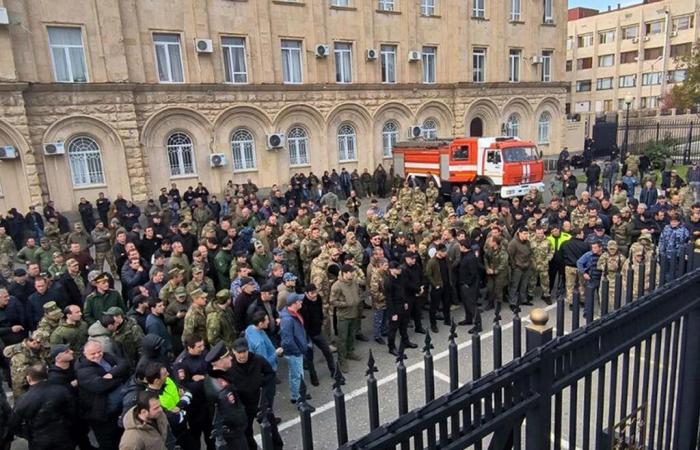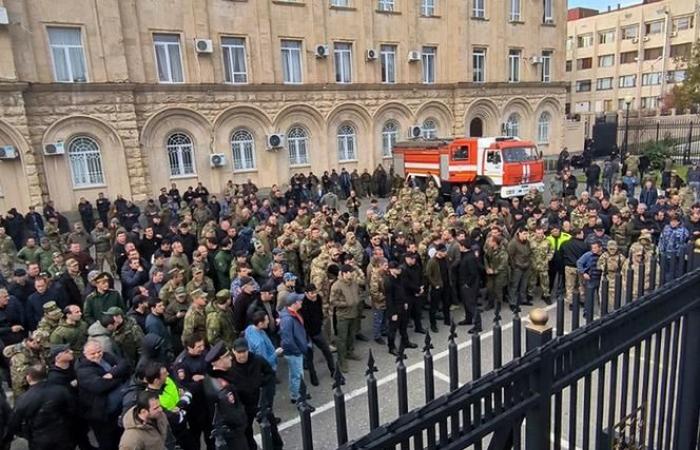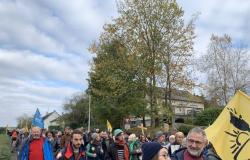Does Russia want to go too fast, too far in Abkhazia? This pro-Russian separatist region of Georgia has been shaken for several days by demonstrations to prevent the ratification of an agreement allowing Russian companies to invest in this territory, located between the Black Sea and the Caucasus Mountains.
Friday, November 15, hundreds of protesters stormed Parliament and a building the presidential administration, in Sukhumi, the “capital”. The demonstrators demanded the resignation of the president of this self-proclaimed state, Aslan Bjania. The police responded by firing tear gas, a first. At least thirteen people were injured.
On Saturday, Aslan Bjania said he was ready to resign if the demonstrators agreed to leave the scene. “Those who attempted a coup must liberate the building complex, after which I am ready to hold elections, ready to resign”he declared. Opposition leaders rejected the call, saying they would only accept his unconditional resignation, and calling for further protests. In a statement published on Saturday, the Opposition Coordination Council believes that“Aslan Bjania resorts to desperate attempts to preserve his government” more than “his reign is over”. The leader is accused of“to enrich one’s family and a restricted circle of loved ones”.
Read also, in 2016: Article reserved for our subscribers Abkhazia, the Caucasus Riviera
Read later
Several Telegram channels reported that Aslan Bjania had agreed to resign, but later in the day he addressed his supporters from his native village of Tamysh, about 40 kilometers from Sukhumi, where he was reportedly escorted with the help of a Russian military unit. “I ask you not to give in to provocationshe declared. I am here, in Abkhazia, and we will continue to work. »
The agreement, signed in late October, would allow Russians to buy apartments in Abkhazia, in the many seaside towns on the Black Sea coast. However, the sale of residential real estate to foreigners has been prohibited since 1995 in this separatist territory. The agreement, signed by the Russian Minister of Economy, Maxim Rechetnikov, and his Abkhazian counterpart, Kristina Ozgan, can only come into force if it is ratified by Parliament.
A poor region, financially dependent on Moscow
According to Jelger Groeneveld, a specialist in South Caucasus foreign policy, the tensions reveal Moscow's desire for total control over this small territory, populated by 240,000 inhabitants over some 8,500 square kilometers. “Russia is trying to impose the integration of Abkhazia, but it does not want to be absorbed or taken over by Moscow, he writes on the Bluesky social network. Abkhazian society wants to follow the path of independence and considers Moscow only as a necessary partner for [la] guarantee vis-à-vis Georgia. She does not want to become a colony of Russia. »
You have 59.23% of this article left to read. The rest is reserved for subscribers.







